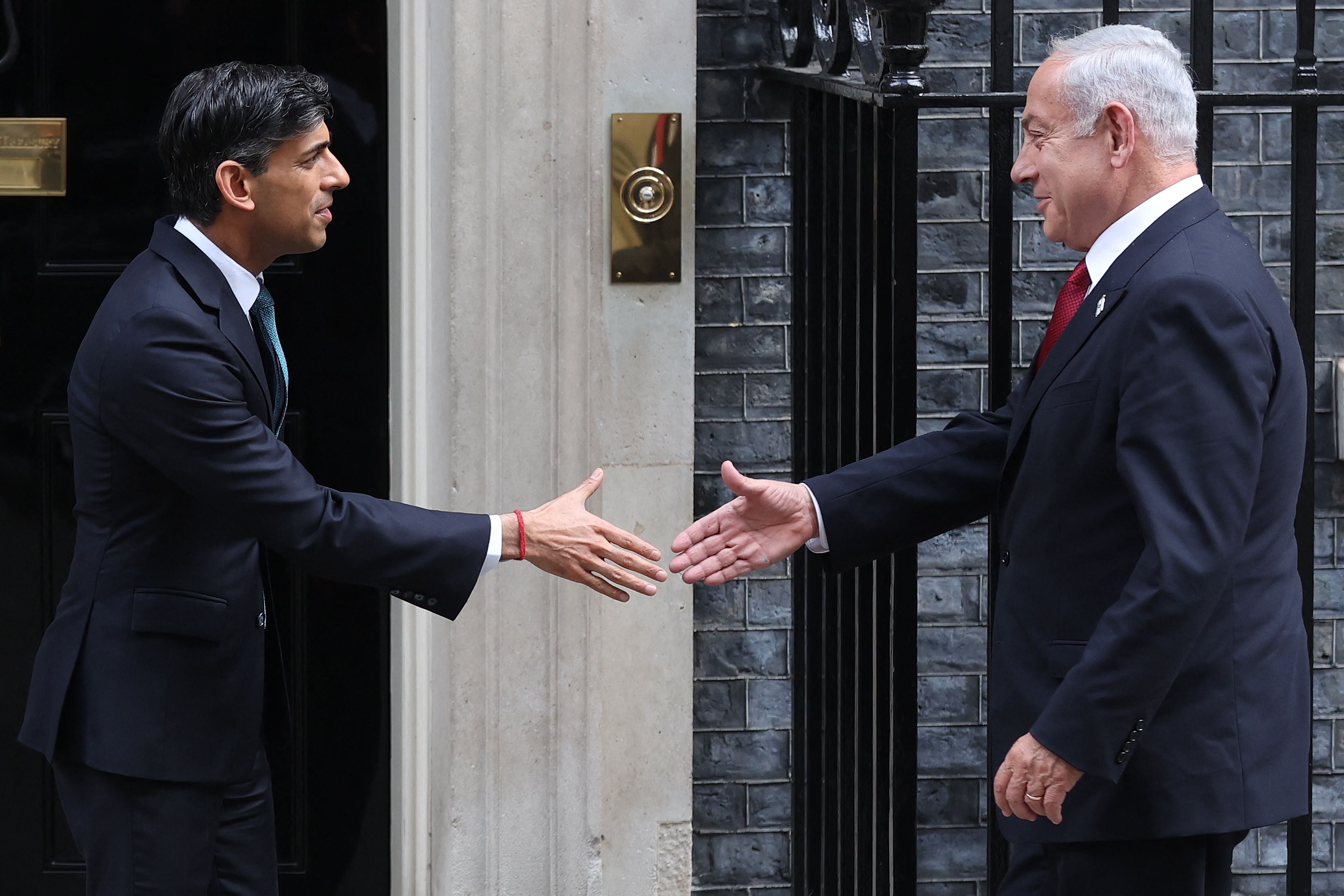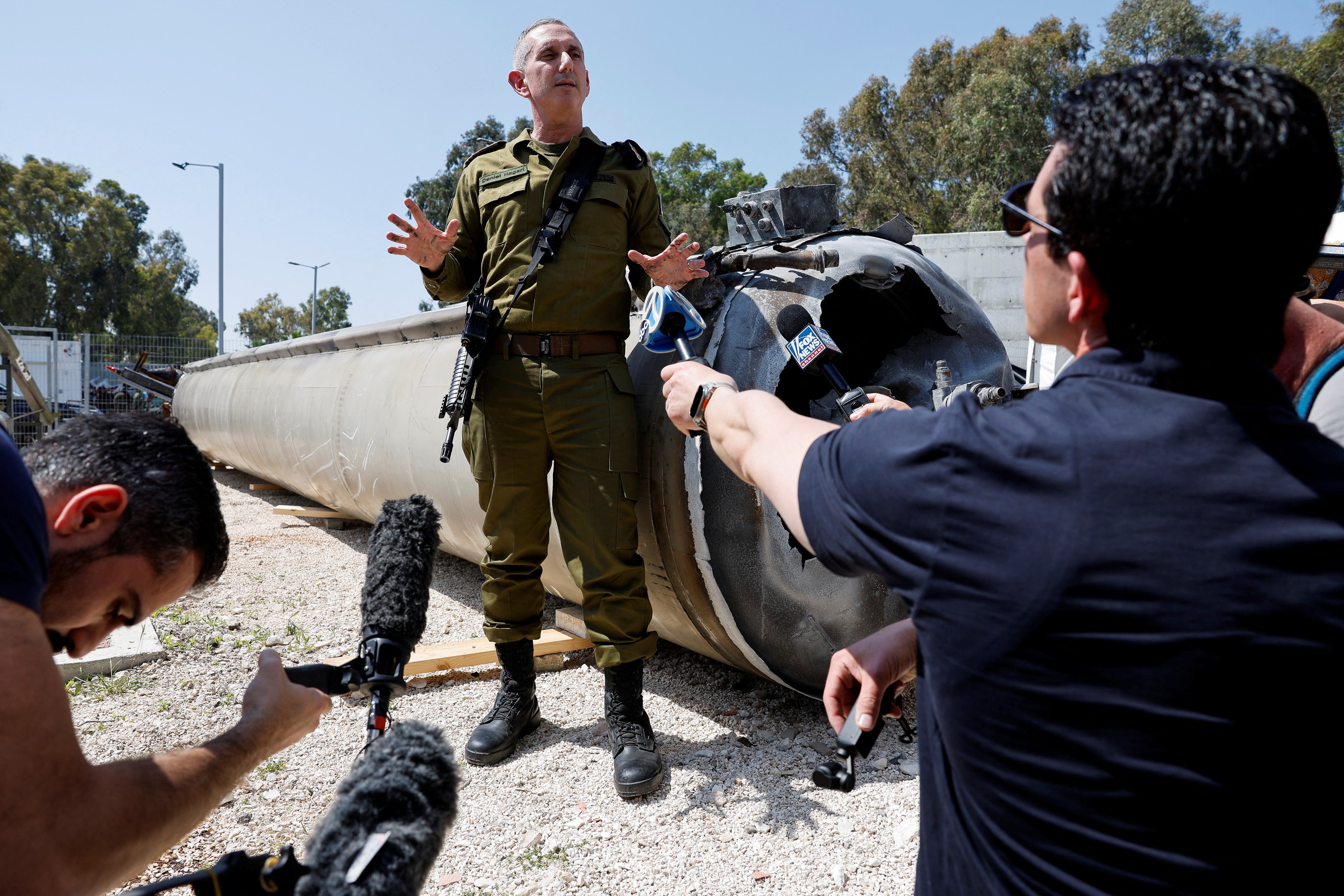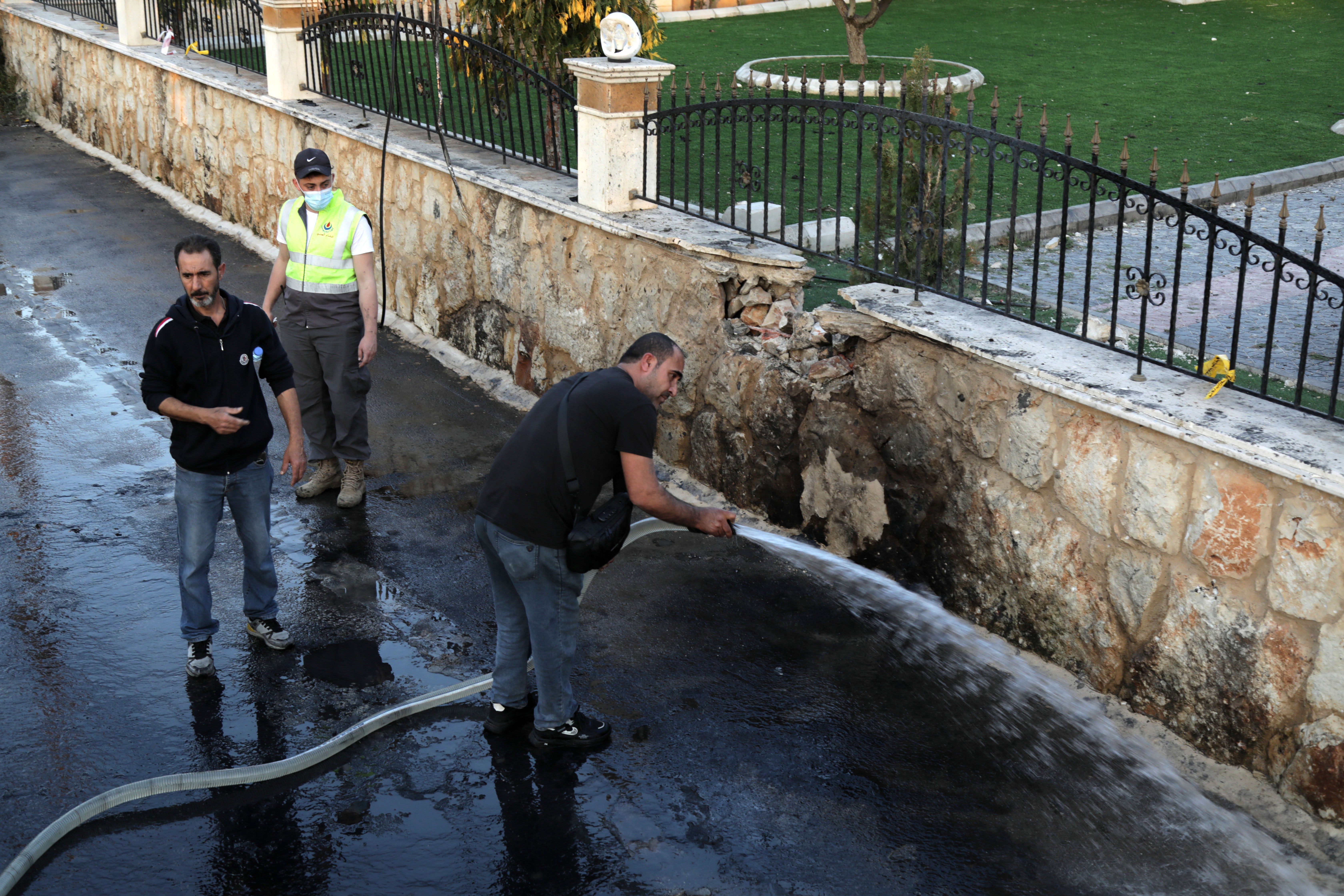UK warns Israel ‘calm heads’ must prevail as US set to hit Iran with sanctions
Rishi Sunak warned Benjamin Netanyahu further escalation between Israel and Iran was in ‘no one’s interest’
Rishi Sunak has told Benjamin Netanyahu that “calm heads” must prevail over the conflict with Iran, as the United States said it will hit Tehran with more sanctions “in the coming days”.
The prime minister spoke to his Israeli counterpart, warning that “significant escalation was in no one’s interest and would only deepen insecurity in the Middle East” in the wake of Saturday’s missile and drone attack.
Israel’s war cabinet met for the third time in three days on Tuesday to decide on a response to what was Iran’s first direct attack on its territory.
Mr Sunak reiterated Britain’s “steadfast support for Israel’s security” and Mr Netanyahu “thanked the UK for its rapid and robust support,” Downing Street said.

“The prime minister said Iran had badly miscalculated and was increasingly isolated on the global stage, with the G7 coordinating a diplomatic response,” a spokesperson said about the leaders’ call.
“He stressed that significant escalation was in no one’s interest and would only deepen insecurity in the Middle East. This was a moment for calm heads to prevail.”
In Washington, treasury secretary Janet Yellen said the US was planning measures that would reduce Iran’s capacity to export oil.
“I fully expect that we will take additional sanctions action against Iran in the coming days,” she said. “Clearly, Iran is continuing to export some oil. There may be more that we could do.”
In Europe, some EU member states have asked for sanctions against Iran to be expanded in response to Tehran’s attack on Israel, foreign policy chief Josep Borrell said.

Separately, German foreign minister Annalena Baerbock said she would head to Israel within hours to discuss how to prevent an escalation.
While Saturday’s drone and missile barrage caused no deaths and little damage, thanks to Israel’s air defences and military help from allies including Britain, it has increased fears that violence rooted in the Gaza war is spreading, with the risk of open war between long-time foes Iran and Israel.
Iran called the barrage retaliation for an Israeli strike that flattened a building in its embassy compound in Damascus on 1 April and killed two of its generals and several other officers.
On Tuesday, a commander of Iran’s proxy group Hezbollah and two others were killed while travelling in car in an Israeli strike on southern Lebanon.
Ismail Baz, who was involved in planning rocket and anti-tank missile attacks on Israel, was killed near the southern town of Ain Ebel, the Israeli military said.

Hezbollah issued a statement mourning Baz’s death but did not elaborate on his role in the organisation. Hezbollah and Israel have traded fire in parallel to the Gaza war in the most serious hostilities since they fought a major war in 2006.
The fighting has claimed the lives of at least 370 Lebanese, including more than 240 Hezbollah fighters and 68 civilians, according to latest figures. Eighteen Israelis, including soldiers and civilians, have been killed.
Lebanon’s Hezbollah, along with Gaza’s Hamas and Yemen’s Houthis, form part of Iran’s “axis of resistance” – a military alliance built over four decades to oppose Israeli and American power in the Middle East, according to experts.
The axis comprises a group of proxies across Yemen, Syria, Iraq, Iran, Lebanon and Palestine, coordinated by Iran’s Quds Force, the foreign arm of the Islamic Revolutionary Guard Corps.
The Quds Force’s aim is to export Iran’s 1979 Islamic revolution abroad. The US assassinated the former head of the Quds Force, Qassem Solemaini, in January 2020.
The US also says its troops in Syria and Iraq have been attacked at least 55 times by Iran-backed proxies since Hamas’s assault on Israel on 7 October.
Join our commenting forum
Join thought-provoking conversations, follow other Independent readers and see their replies
Comments
Bookmark popover
Removed from bookmarks